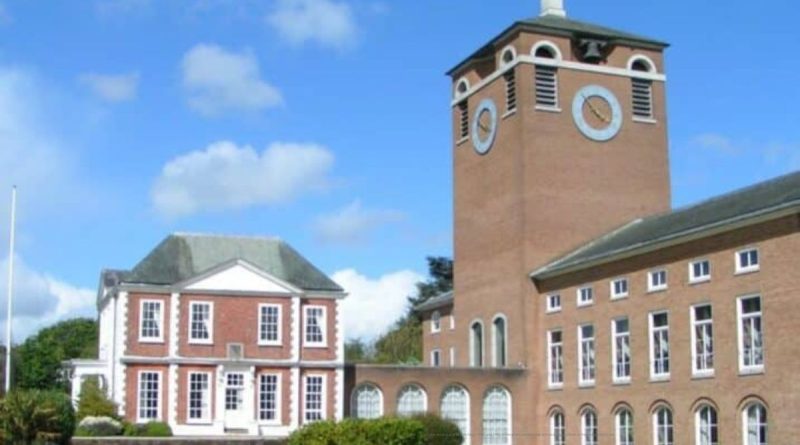We Are Devo(n) ?
With six weeks to go before local councils have to put their plans to Government on how Devon is to be governed, the county council is proving resistant to providing district councils with a full picture.
One South Hams councillor, John Birch, called on Devon County Council to disclose an important financial document. It treated this as a request for disclosure under the Freedom of Information provisions – and turned his request down. The row is over a report compiled by a company called Newton for the county council.
Mr Birch thinks all the Devon district councils should know what’s in it.
It looks like a sinking ship.
It is funded by us the taxpayers, after all, and concerns vital services such as adult social care. But Devon – which wants to become the unitary authority for the county once (if) the districts are abolished – disagrees. The reason given is that the report Mr Birch asked for contained “inaccurate information and was built on assumptions which were inaccurate.”
Any publication would, the council continued, “inhibit the free exchange of views necessary for robust deliberation.” A footnote on the judgement says the only body which supplied information to this “interim” report was Devon itself.
 Mr Birch said: “This is an important document as it contains key financial information required by South Hams and other district councils for preparing their Local Government Reform submission to the Government in November. “The report has been paid for out of public funds and there is, in my opinion, no valid or legal reason why it should not be shared….as has happened elsewhere in the country which is undergoing local government reorganisation.
Mr Birch said: “This is an important document as it contains key financial information required by South Hams and other district councils for preparing their Local Government Reform submission to the Government in November. “The report has been paid for out of public funds and there is, in my opinion, no valid or legal reason why it should not be shared….as has happened elsewhere in the country which is undergoing local government reorganisation.
“Local Government reform will affect all those we represent and it is important that all those involved in the process are open and frank with each other.”
Devon county councillor Paul Arnott, whose in charge of the reorganisation for the county, says another Newton report (apparently not the one John Birch wants) backs the concept of one mega council as better at providing public services than a bunch of smaller councils.
Interestingly this report IS in the public domain. Key findings from the report (not the secret one) include:
•Councils with populations below 500,000 could face up to £270 million in extra annual care costs.
•Smaller councils may need up to 1,100 additional senior care staff, costing £95 million.
•Larger councils are more likely to receive ‘Good’ or ‘Outstanding’ Ofsted ratings.
•Fragmentation could lead to legal disputes over care responsibilities.

At a recent public meeting in Totnes, Mr Birch said: ”I am of the view that time and money spent on this proposed reorganisation would be far better spent on much needed community projects. The whole exercise is proving expensive and is soaking up local government time and funds that we all have had to pay for. As to the county council’s proposal for one unitary authority for Devon, it doesn’t bear thinking about. DCC has previously warned that there is a high risk to its on-going financial stability. The council has used £100 million in reserves to survive. It looks like a sinking ship.”
He continued: “It is time for a new model and not more of the same. The majority of district councils in Devon have agreed on a new and more effective model, which would divide the county in two unitary authorities, plus allow Plymouth to continue on its own. For the southern part of Devon it is proposed that we have one unitary authority consisting of South Hams, West Devon, Torbay and Teignbridge. This would be much more manageable and effective that the Devon County Mark Two being proposed.”
The Government is due to weigh up every council’s idea and decide by next Spring.

